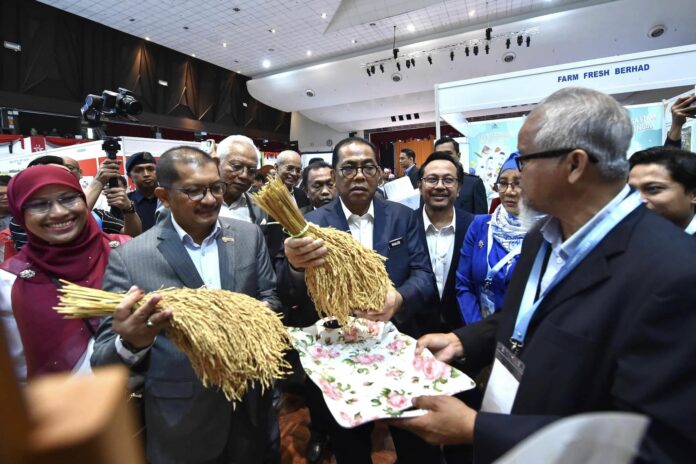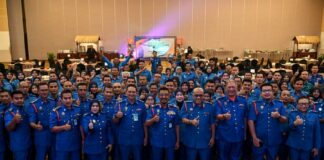SERDANG, Aug 15 — Universiti Putra Malaysia (UPM) today introduced two new varieties of padi known as Padi Putra 1 and Padi Putra 2, which are expected to generate high yields and increase the country’s rice production.
The two padi varieties, produced through UPM’s maiden effort, were launched by Higher Education Minister Datuk Seri Mohamed Khaled Nordin in conjunction with the National Food Security Conference 2023 organised by the university.
UPM Institute of Tropical Agriculture and Food Security (Itafos) director Prof Dr Mohd Rafii Yusop said after nine years of research, Padi Putra 1 and Padi Putra 2 have been approved for commercialisation and nationwide cultivation by the Agriculture and Food Security Ministry (KPKM).
He said both varieties could produce between eight and 12 tonnes of rice for each hectare of land per season or 105 days until harvest day.
“These varieties have been planted in the northwest of Selangor and the Northern Terengganu Integrated Agricultural Development Area for the last two years, and the farmers are starting to reap the benefits,” he told Bernama today.
Mohd Rafii said the padi varieties had also started to be commercialised by a company and sold under a subsidy scheme.
Meanwhile, UPM vice-chancellor Prof Datuk Mohd Roslan Sulaiman said the inaugural conference was a manifestation of UPM’s Strategic Plan 2021-2025 to strengthen the national food security agenda through university and community involvement.
He said the Higher Education Ministry had entrusted UPM with leading research in agriculture and is optimistic that the university would contribute to the government’s efforts in eradicating poverty and enhancing food security.
The conference will intensively discuss food security issues in the country and aims to foster cooperation between public and private institutions to achieve sustainable agriculture and food security stability.
Themed ‘Sustainability of National Food Productivity’, the conference brought together over 400 participants, including policymakers, academics, researchers and entrepreneurs, who will develop a resolution paper on the food security agenda to be submitted to KPKM.
















